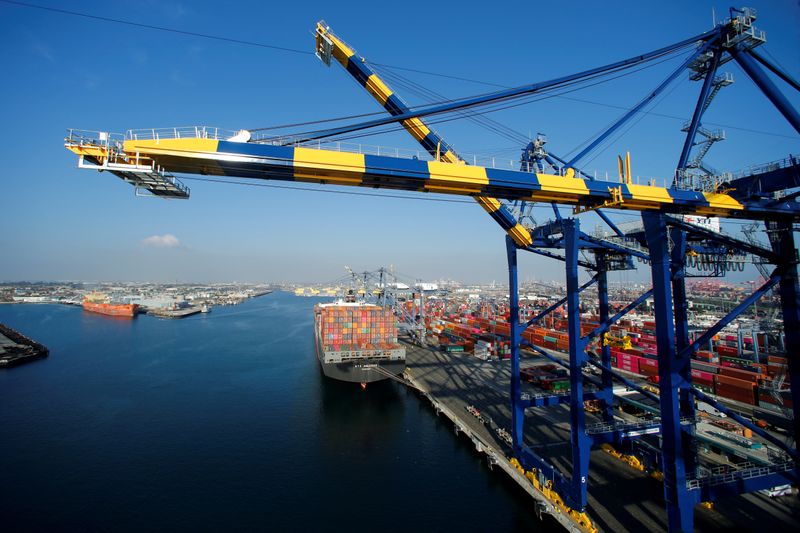(Reuters) - Cargo volumes at the Ports of Los Angeles and Long Beach, the No. 1 gateway for ocean trade with China, dropped sharply in February due to the coronavirus outbreak and lingering effects from the U.S.-China trade war, port operators said on Tuesday.
The spread of the deadly virus known as COVID-19 shut down cities and factories in China for weeks, disrupting ocean and air shipments and roiling global supply chains. China is a vital link in the shipping sector, transporting everything from food to mobile phones and apparel to auto parts.
Total volume of cargo containers - known as 20-foot equivalent units, or TEUs - moved by terminal operators and dockworkers dropped 22.9% at the larger Port of Los Angeles, where 55% of container "lifts" are tied to China.
The adjacent Port of Long Beach reported a year-over-year drop of 9.8% for February.
"We are more interconnected than ever with our global partners so it's no surprise that Trans-Pacific maritime trade has been significantly impacted," Port of Los Angeles Executive Director Gene Seroka said in a statement.
Total February volumes were 544,037 TEUs at the Port of Los Angeles. Imports tumbled 22.5% and exports fell 5.7% for the month.
"With the extended factory closures and slowdown of goods movement in China and other Asian countries in February due to Lunar New Year and COVID-19, we are seeing shipping lines needing to cancel some sailings," Mario Cordero, Port of Long Beach executive director, said.
The Port of Long Beach handled 538,428 TEUs last month. Imports slid 17.9%, while exports, which account for a much smaller share of port traffic, were up 19.3%.
Cargo ships take about two to three weeks to make the journey from China to the U.S. West Coast. U.S. shippers and port executives told Reuters that the coronavirus-related weakness could stretch into April.
